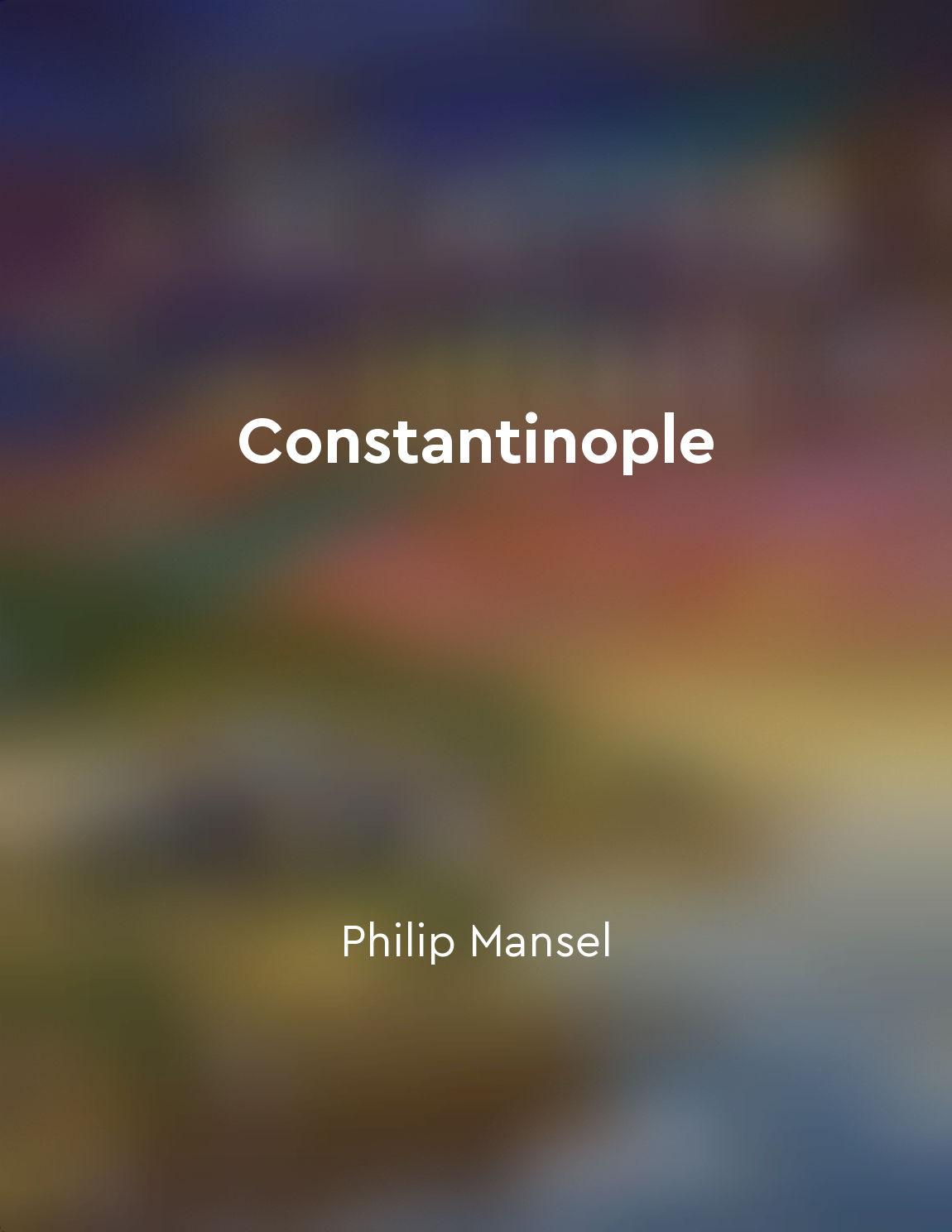Political turmoil from "summary" of Constantinople by Philip Mansel
The city of Constantinople has been no stranger to political turmoil throughout its long and tumultuous history. From the days of the Byzantine Empire to the Ottoman period and beyond, the city has witnessed its fair share of political upheavals, power struggles, and revolutions. The Byzantine Empire, with its intricate web of court intrigues and power struggles, was a hotbed of political turmoil. Emperors were often deposed, blinded, or even killed by rival factions vying for control of the empire. The city itself was a battleground for competing political interests, with factions within the court and the aristocracy constantly scheming and plotting against one another. The fall of Constantinople to the Ottoman Turks in 1453 marked a new chapter in the city's history, but political turmoil continued to be a constant feature of life in the imperial capital. The Ottoman Empire, with its complex system of governance and succession, was no stranger to political intrigue and instability. Sultans often faced challenges from rival claimants to the throne, leading to power struggles and civil wars within the empire. The Tanzimat reforms of the 19th century brought about a period of modernization and reform in the Ottoman Empire, but they also unleashed a wave of political unrest and turmoil. The rise of nationalist movements and revolutionary ideologies challenged the traditional order, leading to rebellions, uprisings, and ultimately the collapse of the empire. The aftermath of World War I saw the city of Constantinople caught up in the whirlwind of political turmoil once again. The Ottoman Empire was dismantled, and the city became a pawn in the power struggles of the Great Powers. The Turkish War of Independence, the Greek occupation of the city, and the Treaty of Lausanne all contributed to the political instability and uncertainty that gripped the city during this period.- Political turmoil has been a constant and defining feature of the history of Constantinople. From the Byzantine Empire to the Ottoman period and beyond, the city has been a stage for power struggles, revolutions, and upheavals. The complex interplay of political forces and rival factions has shaped the destiny of the city and its inhabitants, leaving a legacy of turmoil and instability that continues to resonate to this day.


